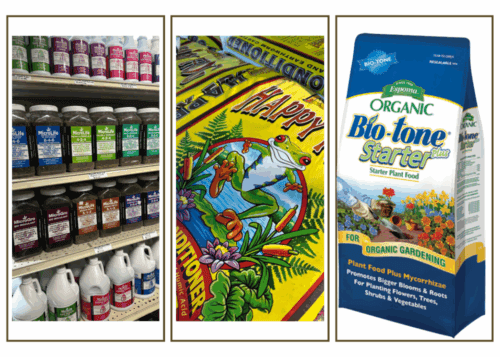Starting a vegetable garden? One crucial step is to prioritize is building healthy garden soil. The level of your gardening success lies in the quality of the soil. It directly impacts plant growth, nutrient availability, and overall garden health.
Why Healthy Soil Matters
Healthy soil is teeming with beneficial microorganisms. These play a vital role in breaking down organic matter and making nutrients accessible to plants. Here are a few reasons why you should focus on soil health:
- Nutrient-Rich Environment: Healthy soil provides essential nutrients that support robust plant growth.
- Improved Water Retention: Good soil structure enables better water absorption and retention, preventing drought stress.
- Disease Resistance: Vibrant soil life can help combat plant diseases and pests, resulting in a more resilient garden.

Suggestions for Building Healthy Garden Soil
To enhance your soil’s health, consider incorporating the following products:
- Happy Frog Soil Conditioner: This product enriches your soil with organic matter, improving its structure and nutrient content. It helps loosen soils for easier root penetration, and encourages nutrient uptake in plants. You can’t go wrong choosing this soil conditioner.
- MicroLife Organic Products: The fertilizers and soil amendments in this line contain beneficial microorganisms that feed the soil, promoting a thriving ecosystem essential for vegetable growth. The Houston based company works to ensure they are using the latest technology and ingredients so plants receive optimum nutrition for outstanding performance. Their entire line of soil amendments are terrific.
- Espoma Bio-Tone: This product gives your vegetable gardens a jump start and helps them get established faster. Incorporate it into the soil before planting your veggies. It contains beneficial microbes, humates and mycorrhizae.
Investing in quality products and focusing on building healthy garden soil will set your vegetable garden up for success and lead to a bountiful harvest.

Maintenance and Monitoring when Building Healthy Garden Soil
This journey to a thriving vegetable garden doesn’t end with just preparing soil. Gardening is an ongoing process that requires attention and care throughout the growing season. Here are a few more tips to ensure your garden remains healthy and productive:
- Compost: Creating healthy soil is not just a one and done kind of thing. Each season you should be adding compost to replenish and continue building healthy garden soil.
- Crop Rotation: Implementing crop rotation can prevent nutrient depletion and reduce the risk of pest and disease buildup. This practice involves changing the location of plant families in your garden each season. If you planted a tomato in one spot last year, avoid that same location for about 3 years. It really makes a difference.
- Mulching: Apply a layer of organic mulch, such as straw or shredded leaves, around your plants. Mulch helps retain moisture, suppress weeds, regulate soil temperature, create a barrier from pest crawling on soil, and if organic, it will add organic matter to the soil as it breaks down. Mulch may be the second most important product that you incorporate into your veggie gardens. It’s an easy way to continue building healthy garden soil each season.
By nurturing your soil with these sustainable practices, you’ll not only enjoy a successful vegetable garden but also contribute to a healthier environment. Your efforts will yield delicious, homegrown produce and a sense of satisfaction that comes from cultivating your own food naturally. Here’s to a great fall veggie season!
~The Happy Gardener, Lisa Mulroy

